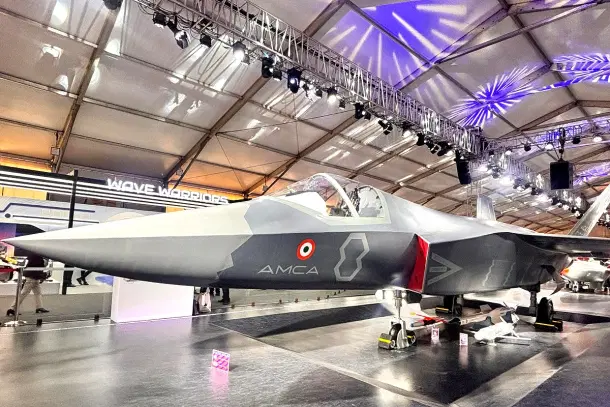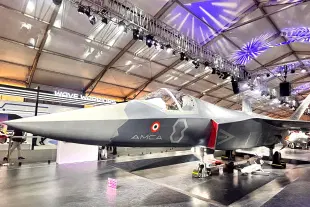News Brief
Industry Calls For ‘Mission Aero Engine’ To Push India’s Full Self-Reliance In Jet Propulsion
Arun Dhital
Oct 31, 2025, 10:36 AM | Updated 10:36 AM IST
Save & read from anywhere!
Bookmark stories for easy access on any device or the Swarajya app.


The domestic defence industry has urged the government to launch a dedicated “Mission Aero Engine” to achieve full self-reliance in propulsion technology for military and civilian aircraft, the Businessline reported.
This development coincides with India’s ongoing negotiations to finalise a co-development agreement with French aerospace giant Safran for advanced fighter jet engines.
The Society of Indian Defence Manufacturers (SIDM), in its report “A Road Map for Aero Engine Development in India”, has warned that overdependence on foreign suppliers leaves India vulnerable to sanctions or restrictions from major nations such as the US, UK, France or Russia.
It recommends a national programme under Aatmanirbhar Bharat to design and manufacture 110 kN thrust-class engines through private-sector participation, supported by government funding and the Gas Turbine Research Establishment (GTRE).
SIDM estimates India’s requirement at over 700 engines for current and future combat aircraft, including the Tejas and the Advanced Medium Combat Aircraft (AMCA), with a potential market value of more than Rs 60,000 crore.
Presently, India’s Tejas fighters use GE’s F404 engines, while GE and Hindustan Aeronautics Limited (HAL) are negotiating local production of F414 engines with 80 per cent transfer of technology.
The report notes that India already has around 80 per cent of the infrastructure needed to develop indigenous engines but must bridge critical gaps in turbine blade design, high-temperature materials, and airborne testing.
It also highlights the commercial potential of adapting the 110 kN core for civilian aircraft like the Airbus A320 or Boeing 737, strengthening economic viability.
SIDM stresses that foreign manufacturers are unlikely to share complete design data, making domestic capability essential for strategic autonomy and technological independence in the long term.
Please click here to add Swarajya as your preferred and trusted news source on Google





